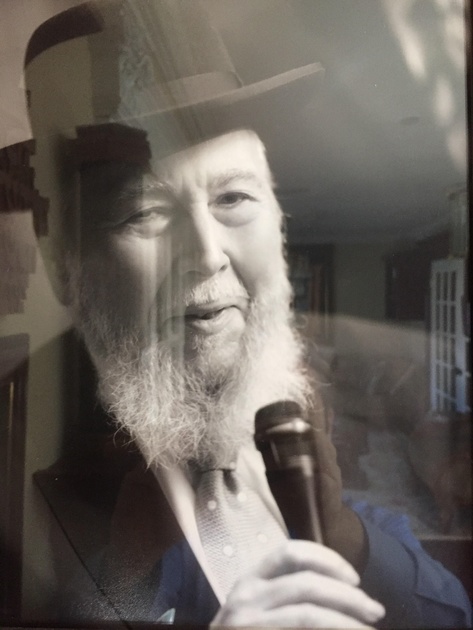
Eruvin 12
ūÉųĖū×ųĘū© ū©ųĘūæ ūÖų░ūöūĢų╝ūōųĖūö ūÉųĖū×ųĘū© ū©ųĘūæ: ū×ųĖūæūĢų╣ūÖ ū®ūüųČūÉūćū©ų░ūøų╝ūĢų╣ ūøų╝ų░ū©ūćūŚų░ūæų╝ūĢų╣ ūÉųĄūÖūĀūĢų╣ ūĀų┤ūÖū¬ų╝ųĖū© ūæų╝ų░ū£ųČūŚų┤ūÖ ū×ųĘū®ų╝ūüųČūöūĢų╝. ūÉųĖū×ųĘū© ū©ųĘūæ ūŚų┤ūÖų╝ųĖūÖūÉ ūæų╝ųĘū© ūÉųĖū®ūüųĄūÖ ūÉųĖū×ųĘū© ū©ųĘūæ: ū×ųĖūæūĢų╣ūÖ ū®ūüųČūÉūćū©ų░ūøų╝ūĢų╣ ūøų╝ų░ū©ūćūŚų░ūæų╝ūĢų╣ ūÉųĄūÖūĀūĢų╣ ūĀų┤ūÖū¬ų╝ųĖū© ūæų╝ų░ū¦ūĢų╣ū©ųĖūö ūśųČūżųĘūŚ.
Rav Yehuda said that Rav said: Unlike other alleyways, carrying within an alleyway whose length is equal to its width is not permitted by means of a side post of minimal width. Like a courtyard, carrying within it is permitted only by means of an upright board four handbreadths wide. Rav ßĖżiyya bar Ashi said in the name of Rav: Carrying within an alleyway whose length is equal to its width is not permitted by a cross beam with the width of a handbreadth.
for Video Shiur click here to listen: Psychology of the DAF Eruvin 12
ūÉųĖū×ųĘū© ū©ųĘūæų╝ų┤ūÖ ū¢ųĄūÖū©ųĖūÉ: ūøų╝ųĘū×ų╝ųĖūö ū×ų░ūøųĘūĢų╝ų░ūĢūĀųĖū¤ ū®ūüų░ū×ųĘūóų░ū¬ų╝ųĖūÉ ūōų░ūĪųĖūæųĄūÖ. ūøų╝ųĄūÖūĢųĖū¤ ūōų╝ų░ūÉūćū©ų░ūøų╝ūĢų╣ ūøų╝ų░ū©ūćūŚų░ūæų╝ūĢų╣ — ūöųĖūĢųĄūö ū£ųĄūÖūöų╝ ūŚųĖū”ųĄū©, ūĢų░ūŚųĖū”ųĄū© ūÉųĄūÖūĀųĖūöų╝ ūĀų┤ūÖū¬ų╝ųČū©ųČū¬ ūæų╝ų░ū£ųČūŚų┤ūÖ ūĢų░ū¦ūĢų╣ū©ųĖūö, ūÉųČū£ų╝ųĖūÉ ūæų╝ų░ūżųĘūĪ ūÉųĘū©ų░ūæų╝ųĖūóųĖūö.
Rabbi Zeira said: How precise are the traditions of the Elders. He explains: Since the length of the alleyway is equal to its width, it is regarded like a courtyard, and carrying within a courtyard is not permitted by means of a side post or a cross beam, but only by means of an upright board of four handbreadths.
Rashi: ūøū×ūö ū×ūøūĢūĢūĀūÖū¤ - ū£ūĪūÖūÖūóū¤ ūöūĢūÉ ūæūÉ
This phrase of Rabbi Zeira is repeated once more in shas, about a different machlokes:
Bava Basra 149b
ū®ūÖūÖū© ū¦ū©ū¦ūó ūøū£ ū®ūöūĢūÉ ū×ū¬ūĀū¬ūĢ ū¦ūÖūÖū×ū¬ ūĢūøū×ūö ūøū£ ū®ūöūĢūÉ ūÉū×ū© ū©ūæ ūÖūöūĢūōūö ūÉū×ū© ū©ūæ ū¦ū©ū¦ūó ūøūōūÖ ūżū©ūĀūĪū¬ūĢ ūĢū©ūæ ūÖū©ū×ūÖūö ūæū© ūÉūæūÉ ūÉū×ū© ū×ūśū£ūśū£ūÖū¤ ūøūōūÖ ūżū©ūĀūĪū¬ūĢ
- The mishna teaches (146b): If a person on his deathbed reserved for himself any amount of land, his gift stands even if he subsequently recovers. The Gemara asks: And how much is meant by the term: Any amount? Rav Yehuda says that Rav says: This means land that is sufficient to provide for his livelihood. Since he reserved this land for himself, one can assume that he wished to transfer the rest of his property in any event. And Rav Yirmeya bar Abba says: Even if he reserved for himself movable property that is sufficient to provide for his livelihood, his gift is valid.
ūÉū×ū© ū©ūæūÖ ū¢ūÖū©ūÉ ūøū×ūö ū×ūøūĢūĢūĀū¤ ū®ū×ūóū¬ū¬ūÉ ūōūĪūæūÖ ū¦ū©ū¦ūó ūśūóū×ūÉ ū×ūÉūÖ ūōūÉūÖ ū¦ūÉūÖ ūĪū×ūÖūÜ ūóū£ūÖūö ū×ūśū£ūśū£ūÖ ūĀū×ūÖ ūÉūÖ ū¦ūÉūÖ ūĪū×ūÖūÜ ūóūÖū£ūĢūÖūöūĢ
Rabbi Zeira said: How meticulous are the halakhic statements of the elders Rav Yehuda and Rav Yirmeya. With regard to land, what is the reason that he must have reserved enough for his livelihood? The reason is that if he recovers he will rely on that land for his livelihood. With regard to movable property as well, if he recovers he will rely on it for his livelihood
This phrase is an uncommon phrase, and I would like to delve into what Rabbi Zeira was saying, what he was reacting to, and why did he use this phrase only in these two instances.
Although some would translate ūøū×ūö ū×ūøūĢūĢūĀūÖ as “how appropriate are the teachings of the elders”, it is notable that the best translation is “How corresponding are the teachings of the elders”. The significance is that Rav Zeira is actually finding a harmony between the two opinions. That is, even though there is a halakhic disagreement the core reason is the same and in agreement. With Eiruv, the fact that a square area too closely resembles a chatzer (courtyard) instead of a mavuy (alley), leads to a different rule. Even though Rav Chiyya bar Ashi and Rav Yehuda require different upgrades to the mechitza, the core reason is the same. Same regarding the machlokes about matnas ū®ūøūÖūæ ū×ū©ūó in Bava Basra, whether it is the opinion of Rav Yirmiya bar Abba or Rav Yehuda, leaving a small amount of land or property changes the assumption about the permanence of the deathbed assignment of assets.
It is notable that Rav Zeira was a Talmid of Rav, and so were Rav Yehuda, Rav Yirmiya, and Rav Chiyya bar Ashi. Thus, finding an ultimate Harmony between all the opinions was of vital
Importance to Rav Zeira as they ALL were students of Rav, to some extent.
for Video Shiur click here to listen: Psychology of the DAF Eruvin 12
Translations Courtesy of Sefaria
Photo Abba Mari Rav Chaim Feuerman, Ed.D. ZT"L Leiyluy Nishmaso

 Previous
Previous
